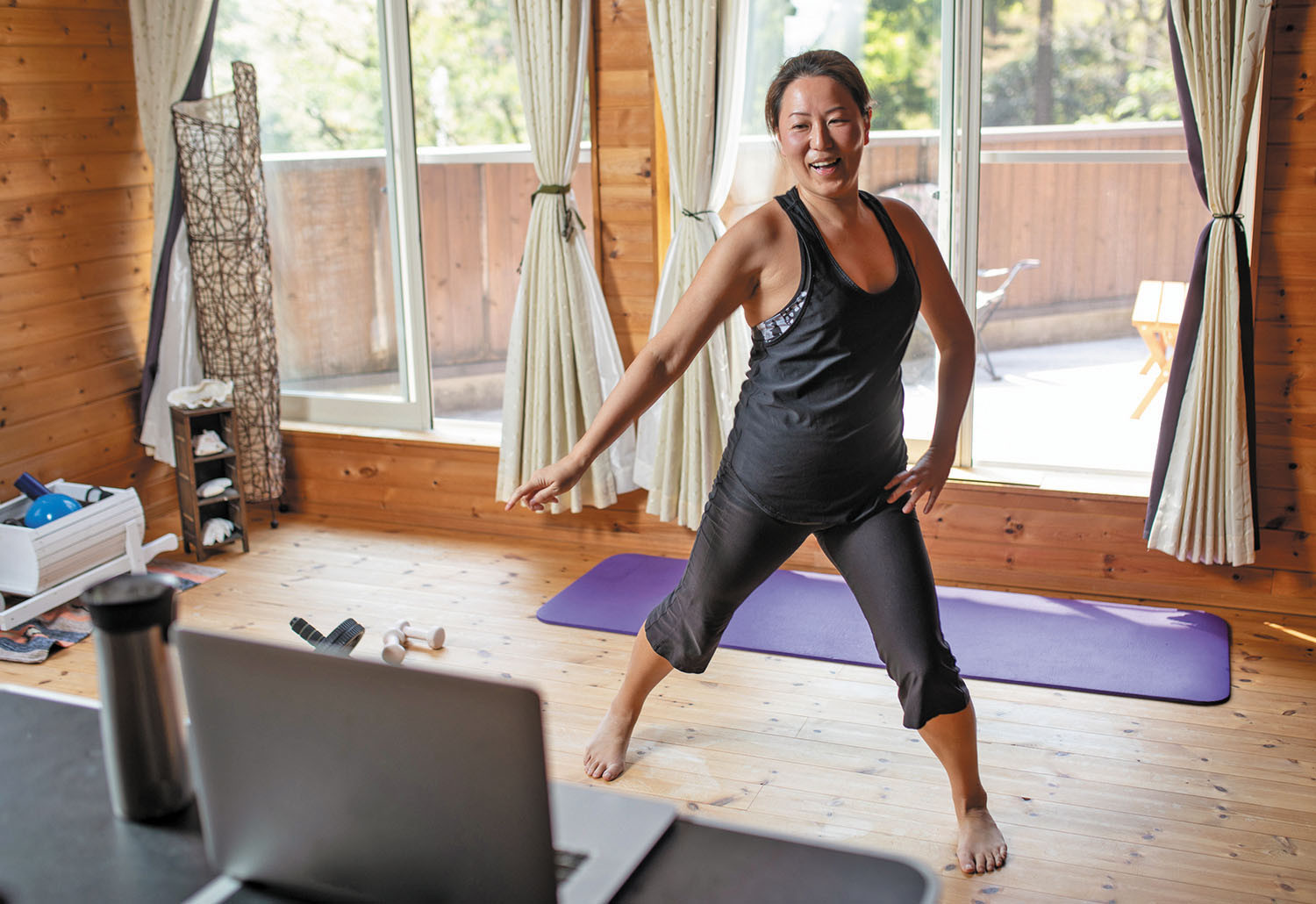
5 timeless habits for better health

What are the symptoms of prostate cancer?

Is your breakfast cereal healthy?

When pain signals an emergency: Symptoms you should never ignore

Does exercise give you energy?

Acupuncture for pain relief: How it works and what to expect

How to avoid jet lag: Tips for staying alert when you travel

Biofeedback therapy: How it works and how it can help relieve pain

Best vitamins and minerals for energy

Should you take probiotics with antibiotics?
Staying Healthy Archive
Articles
The best way to beat colon cancer
When do you need to get screened, and how often?
One of the deadliest cancers can be prevented or detected at a curable stage if you follow recommended screening guidelines.
Colon cancer is the second most common cause of cancer deaths in the United States, according to the American Cancer Society (ACS). The good news is that the death rate has steadily dropped over the past several decades among older adults. (However, among people under 55, death rates from colon cancer have grown slowly, but steadily, since 2008.)
Should I get a flu shot this year?
Ask the doctors
Q. I'm debating whether I need to get a flu shot this year. Do you think it's worthwhile?
A. The answer to this question is an emphatic yes. It's more important than ever to get a flu shot this year for a number of reasons. First, it will reduce your likelihood of contracting, being hospitalized for, or dying from influenza, which should be reason enough to roll up your sleeve. In addition, if you do get sick with the flu after being vaccinated, the vaccine can reduce the severity of your illness.
Stuck at home?
You can get a good workout anyway.
The winter months present numerous challenges to maintaining your fitness in a typical year. This year, with the COVID-19 pandemic, it may be harder than ever to get to the gym or your usual exercise class.
What can you do to keep your body in motion and not lose ground as the weather turns colder? The answer, luckily, is plenty, says Dr. Beth Frates, an assistant professor physical medicine and rehabilitation at Harvard Medical School. There are many effective workouts that don't require a large space, a gym, expensive equipment, or even a live instructor.
Common ways to fight the common cold
These three remedies may reduce symptom duration and severity.
While there's no cure for the common cold, everyone seems to have a surefire remedy they embrace.
Some of the popular ones are sucking on zinc lozenges, boosting your vitamin C intake, and even slurping up steaming bowls of old-fashioned chicken soup.
New ingredient may keep bugs at bay
Research we're watching
A new type of bug spray may hit the market in the next few years. The Environmental Protection Agency recently approved a new ingredient for use in these products. Called nootkatone, this ingredient, which smells like grapefruit, is hoped to safely kill and drive away mosquitos and ticks. Studies show that it's about as effective as other ingredients used in insect sprays, and it can provide protection against bugs for several hours at a time.
Nootkatone is found naturally in Alaska yellow cedar trees as well as in grapefruit skin and has long been used in perfumes. Now that the ingredient is registered with the EPA, companies can use it to develop commercial insecticides, something that could happen as soon as 2022, according to the CDC. This will expand the options for insect control and may be particularly useful in areas where insects have become resistant to existing products, says the CDC.
About face
This daily routine can help your aging skin stay healthy.
Your skin goes through many changes as you age. All you need to do is look in the mirror.
Aging skin loses fat and becomes thinner and drier. Red and pimply spots can appear on the face (a condition known as rosacea).
Are you taking too many medications?
Peer into your pillbox: It may be time to streamline your drug regimen.
Medication regimens often start simply, perhaps with a multivitamin and a single prescription drug to treat a chronic condition. But with age and more health problems, a regimen may grow to include additional prescription drugs and dietary supplements (such as vitamin D and calcium), plus over-the-counter medicines to reduce symptoms such as pain or heartburn. In time, you can find yourself facing a crowded pillbox and a complicated regimen.
"Among people age 62 to about 85, a third will take five medications per person. In the higher-risk population that I take care of, those people average 15 medications per person. And some of the dialysis patients take about 20 prescriptions," says Joanne Doyle Petrongolo, a pharmacist at Harvard-affiliated Massachusetts General Hospital.
Easy ways to fight pandemic-era inactivity
Interrupt your sitting time with a break every hour.
For many people, the effects of the pandemic include less physical activity. But long periods of sitting are bad for health. They're associated with increased risks for obesity, diabetes, heart disease, stroke, cancer, and metabolic syndrome (a cluster of health conditions that include abdominal obesity, unhealthy cholesterol levels, high blood pressure, and high blood sugar). Too much sitting is even linked to an early death. The good news: staying active throughout the day helps reverse the effects of too much sitting.
Doctor's orders
"Take a two-, five-, or 10-minute break at least once per hour," advises Dr. Beth Frates, director of wellness programming for the Stroke Research and Recovery Institute at Harvard-affiliated Spaulding Rehabilitation Hospital.
5 factors to help you gauge where COVID-19 risk is highest
The more risk factors, the higher your chance of exposure.
Your local gym, the take-out joint, the gas station or grocery store, your doctor's office, your grandchild's playground: among the public areas you visit most, which ones pose the biggest risks for exposure to COVID-19?
For advice, we turned to Joseph Allen, associate professor of exposure assessment science and director of the Healthy Buildings Program at the Harvard T.H. Chan School of Public Health. He suggests considering the following five risk factors.

5 timeless habits for better health

What are the symptoms of prostate cancer?

Is your breakfast cereal healthy?

When pain signals an emergency: Symptoms you should never ignore

Does exercise give you energy?

Acupuncture for pain relief: How it works and what to expect

How to avoid jet lag: Tips for staying alert when you travel

Biofeedback therapy: How it works and how it can help relieve pain

Best vitamins and minerals for energy

Should you take probiotics with antibiotics?
Free Healthbeat Signup
Get the latest in health news delivered to your inbox!
Sign Up











